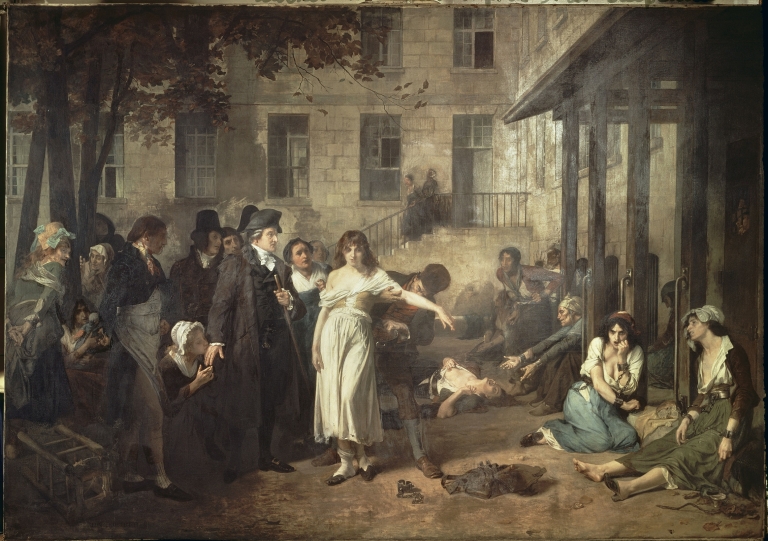The very first case of mental illness reported in the history of Québec dates way back to the 17th century. In 1661, Jesuit Jérôme Lalemant, in his writings, described the state of health of a female who had been "possessed for periods of five to six months at a time by a demon of insanity". According to this Jesuit priest, the woman was placed in a room at the Hôtel-Dieu de Québec, where she spent the night under the surveillance of an attendant, a priest and a few other people. This woman apparently fully recovered, as she subsequently married and had several children.
Mental Illness in the 19th Century
For a very long while, mental illness was associated with crime. In the 17th and 18th centuries, the mentally ill were offered two options: hospital or prison. The purpose of these two places of confinement were to remove these people from society and abolish panhandling.
In 1793, a French doctor by the name of Philippe Pinel developed a new theory that rejected the conceptions of insanity that existed in society at the time. Pinel advocated giving up violent therapeutic treatments in favour of calmer, more humane methods. He was also one of the first to classify mental illness into four categories: melancholia, mania, idiocy and dementia. For a long time, this categorization of mental illnesses was the only benchmark in the field of psychiatry.
First steps toward a mental health science
Between 1890 and 1910, the Douglas Hospital indicated, as “probable causes of insanity”, a number of health problems that seem hare-brained today: On this list were such problems as an unhappy love affair, fear, insomnia, religious agitation, the flu and many others.
In the late 19th century, Philippe Pinel's classification was replaced with three types of mental disorders: general paralysis, which included all complications of tertiary syphilis; alcoholism (withdrawal, psychoses, intoxication, alcoholic dementia) and schizophrenia. This was the infancy of psychiatry—the science of mental health.

